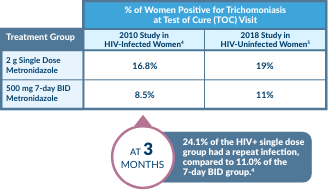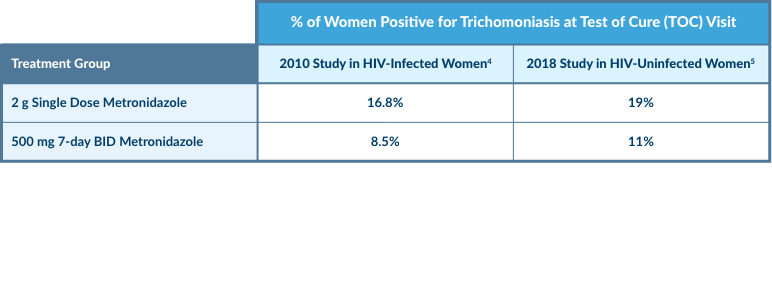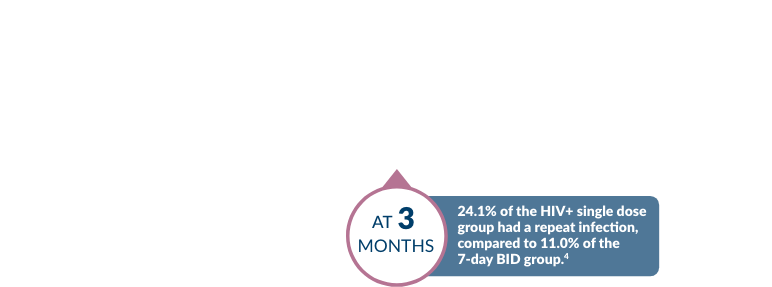EVOFEM TERMS OF SERVICE FOR SOLOSECHCP.COM
Last Updated: October 2024
The website solosechcp.com ("Site") is provided by Evofem Biosciences, Inc. ("Evofem" or "Company" or "Our" or "Us" or "We") to provide information and selected functionality to interested parties ("User," "Users" "you" or "your"). Healthcare professionals can provide their contact information to engage in communications with Evofem.
PLEASE READ THESE TERMS OF SERVICE ("TERMS") AND OUR PRIVACY POLICY (COLLECTIVELY, THE "AGREEMENT") CAREFULLY BECAUSE THIS AGREEMENT CONSTITUTES A LEGALLY BINDING CONTRACT BETWEEN YOU AND EVOFEM. IF YOU DO NOT WISH TO ACCEPT THIS AGREEMENT, PLEASE DO NOT ACCESS OR USE THE SITE. BY ACCESSING, DOWNLOADING, USING, THE SITE, YOU AGREE (1) TO BE BOUND BY THIS AGREEMENT, (2) YOU ARE AT LEAST 18 YEARS OLD, (3) YOU HAVE READ AND UNDERSTAND THIS AGREEMENT AND (4) YOU ACCEPT THIS AGREEMENT.
NOTE: THESE TERMS CONTAIN A DISPUTE RESOLUTION AND ARBITRATION PROVISION, INCLUDING CLASS ACTION WAIVER THAT AFFECTS YOUR RIGHTS UNDER THESE TERMS AND WITH RESPECT TO DISPUTES YOU MAY HAVE WITH THE COMPANY. YOU MAY OPT OUT OF THE BINDING INDIVIDUAL ARBITRATION AND CLASS ACTION WAIVER AS PROVIDED BELOW.
1 MODIFICATION OF THIS AGREEMENT.
We may change, modify, add or remove portions of this Agreement (each, an "Update") at any time and in our sole discretion without prior notice and such Updates will be effective immediately. If we make Updates to this Agreement, we will change the "Last Updated" date above. Your continued use of the Site will confirm your acceptance of the Update. We encourage you to frequently review this Agreement to ensure you understand the latest terms and conditions associated with use of the Site. If you do not agree to the Update, you must discontinue using the Site.
2 OWNERSHIP; PROPRIETARY RIGHTS.
The Site, including all information and materials contained therein, is owned and operated by Evofem. All content, images, illustrations, designs, names, products, services, icons, photographs, video clips, typefaces, source and object code, format, queries, algorithms, visual interfaces, HTML, information, graphics, design, look and feel, compilation, and all other elements (whether written or otherwise) of the Site (collectively, the "Materials"), as well as their selection and arrangement, and all intellectual property and other rights relating to Materials, are protected by, as appropriate by United States copyright, trade dress, patent, and trademark laws, international laws and conventions, and all other relevant intellectual property and proprietary rights, and applicable laws. All Materials contained in the Site are the property of Evofem or its subsidiaries or affiliated companies and/or third-party licensors. Except as expressly authorized by Evofem under this Agreement, you agree not to directly or indirectly sell, license, distribute, copy, modify, publicly perform or display, transmit, publish, edit, adapt, create derivative works from, or otherwise make unauthorized use of the Materials.
3 GUIDELINES; USAGE RULES; PROHIBITED CONDUCT AND USES.
3.1 YOU UNDERSTAND AND HEREBY ACKNOWLEDGE AND AGREE THAT YOU WILL NOT ENGAGE IN THE PROHIBITED CONDUCT AND USES LISTED BELOW (THE "GUIDELINES"). YOU WILL NOT:
3.1.1 use the Site or any information displayed within the Site to stalk, harass, abuse, defame, threaten or defraud other Users, or collect, attempt to collect or store location or personal information about other Users;
3.1.2. use the Site if you are under the age of eighteen (18) years old;
3.1.3 use the Site for any illegal purpose, or in violation of any local, state, national, or international law, including, without limitation, laws governing intellectual property and other proprietary rights, data security and privacy, and import or export control;
3.1.4. make unsolicited offers, advertisements, proposals, or send junk mail, to other Users of the Site. This includes, but is not limited to, unsolicited advertising, promotional materials or other solicitation material, bulk mailing of commercial advertising, chain mail, informational announcements, charity requests, and petitions for signatures, surveying or requests to participate in surveys or studies;
3.1.5. impersonate any person or entity, falsely claim an affiliation with any person or entity, or access the Site accounts of other Users;
3.1.6. misrepresent the source, identity or content of information transmitted via the Site;
3.1.7. remove, circumvent, disable, damage or otherwise interfere with security-related features of the Site, features that prevent or restrict use or copying of any content accessible through the Site, or features that enforce limitations on use of the Site;
3.1.8. intentionally interfere with or damage operation of the Site or any User's enjoyment of them, by any means, including uploading or otherwise disseminating viruses, worms, invalid data, keyloggers, spyware, Trojan horses, time bombs, or other malicious or harmful code, or imposing an unreasonable or disproportionately large load on our infrastructure;
3.1.9. post, store, send, transmit, or disseminate any information or material which a reasonable person could deem to be objectionable, defamatory, libelous, offensive, obscene, indecent, pornographic, harassing, threatening, embarrassing, distressing, vulgar, hateful, racially or ethnically or otherwise offensive to any group or individual, intentionally misleading, false, harmful to minors, or otherwise inappropriate, regardless of whether this material or its dissemination is unlawful;
3.1.10. post, store, send, transmit, or disseminate any information or material which infringes any patents, trademarks, trade secrets, copyrights, or any other proprietary or intellectual property rights;
3.1.11. attempt to gain unauthorized access to the Site, or any part of it, other accounts, computer systems or networks connected to the Site, or any part of it, through hacking, password mining or any other means or interfere or attempt to interfere with the proper working of the Site or any activities conducted on the Site;
3.1.12. hack, spam or phish Evofem or any Users of the Site; or
3.1.13. hold Evofem responsible for your use of the Site.
Please let us know about any inappropriate behavior that you become aware of within the Site. If you find something that violates this Agreement or these Guidelines, let us know by sending us an e-mail to info@evofem.com. We reserve the right, in our sole and absolute discretion, to deny you or anyone access to the Site without notice.
4 USAGE; REFUSAL OR SUSPENSION OF SERVICE.
4.1. EVOFEM RESERVES THE RIGHT, BUT HAS NO OBLIGATION, TO HAVE OUR SYSTEMS MONITOR ANY USER'S USE OF THE SITE. ACCORDINGLY, EVOFEM ALSO RESERVES THE RIGHT TO DISABLE ANY USER'S USE OF OR ACCESS TO THE SITE.
4.2. You alone are responsible for your involvement with other Users. You agree that Evofem will not be responsible for any loss or damage incurred as the result of any such interactions.
5 THIRD-PARTY SITES, PRODUCTS AND SERVICES; LINKS.
The Site may include links to other websites or services ("Third Party Websites") solely as a convenience to Users. Evofem does not endorse any such Third Party Websites or the information, material, products or services contained on other linked sites or accessible through other Third Party Websites. Furthermore, Evofem makes no express or implied warranties with regard to the information, material, products or services that are contained on or accessible through Third Party Websites. Access and use of Third Party Websites, including information, material, products and services on Third Party Websites or available through Third Party Websites is solely at your own risk.
6 USER RESTRICTIONS
Restrictions. You may not: (i) modify, disassemble, decompile or reverse engineer the Site; (ii) rent, lease, loan, resell, sublicense, distribute or otherwise transfer the Site to any third party or use the Site to provide time sharing or similar services for any third party; (iii) make any copies of the Site; (iv) remove, circumvent, disable, damage or otherwise interfere with security-related features of the Site, features that prevent or restrict use or copying of any content accessible through the Site, or features that enforce limitations on use of the Site; or (v) delete the copyright and other proprietary rights notices on the Site.
7 VIOLATIONS; TERMINATION.
You agree that Evofem, in the good faith belief that you have violated any of the terms and conditions of this Agreement, may terminate your use of the Site or any portion thereof at any time. You agree that any termination of your access to the Site may have or portion thereof may be effected without prior notice, and you agree that Evofem will not be liable to you or any third-party for any such termination. Evofem does not permit copyright infringing activities on the Site, and reserves the right to terminate access to the Site, and remove all content submitted by any persons who are found to be infringers. Any suspected fraudulent, abusive or illegal activity that may be grounds for termination of your use of the Site may be referred to appropriate law enforcement authorities. These remedies are in addition to any other remedies Evofem may have at law or in equity.
8 DISCLAIMERS; NO WARRANTIES.
THE SITE IS MADE AVAILABLE "AS IS", "AS AVAILABLE", AND WITHOUT WARRANTIES OF ANY KIND EITHER EXPRESS OR IMPLIED. EVOFEM, AND ITS SUPPLIERS, LICENSORS AND PARTNERS, DISCLAIM ALL WARRANTIES, EXPRESS OR IMPLIED, INCLUDING, BUT NOT LIMITED TO, IMPLIED WARRANTIES OF TITLE, MERCHANTABILITY, FITNESS FOR A PARTICULAR PURPOSE, AND NON-INFRINGEMENT OF PROPRIETARY RIGHTS.
EVOFEM AND ITS SUPPLIERS, LICENSORS AND PARTNERS DO NOT WARRANT THAT THE FUNCTIONS CONTAINED IN THE SITE WILL BE UNINTERRUPTED OR ERROR-FREE, THAT DEFECTS WILL BE CORRECTED, OR THAT THE SITE OR THE SERVER THAT MAKES IT AVAILABLE ARE FREE OF VIRUSES OR OTHER HARMFUL COMPONENTS.
CERTAIN STATE LAWS DO NOT ALLOW LIMITATIONS ON IMPLIED WARRANTIES. IF THESE LAWS APPLY TO YOU, SOME OR ALL OF THE ABOVE DISCLAIMERS, EXCLUSIONS OR LIMITATIONS MAY NOT APPLY TO YOU, AND YOU MIGHT HAVE ADDITIONAL RIGHTS.
9 INDEMNIFICATION; HOLD HARMLESS.
YOU AGREE TO INDEMNIFY, DEFEND, AND HOLD EVOFEM (AND ITS AFFILIATED COMPANIES, CONTRACTORS, EMPLOYEES, DIRECTOR, OFFICERS, AGENTS, AND SUPPLIERS, LICENSORS AND PARTNERS) HARMLESS FROM ANY AND ALL CLAIMS, SUITS, ACTIONS, LOSSES, COSTS, DAMAGES, AND ANY OTHER LIABILITIES, INCLUDING ATTORNEYS' FEES, BROUGHT BY A THIRD PARTY ARISING OUT OF OR RELATED TO (I) YOUR USE OR MISUSE OF ANY PROVIDED INFORMATION OR THE SITE GENERALLY; (II) ANY VIOLATION OF THE RIGHTS OF ANY OTHER PERSON OR ENTITY BY YOU; (III) ANY BREACH OR VIOLATION BY YOU OF THIS AGREEMENT. EVOFEM RESERVES THE RIGHT, AT YOUR EXPENSE, TO ASSUME THE EXCLUSIVE DEFENSE AND CONTROL OF ANY MATTER FOR WHICH YOU ARE REQUIRED TO INDEMNIFY US, AND YOU AGREE TO COOPERATE WITH OUR DEFENSE OF THESE CLAIMS.
10 LIMITATION OF LIABILITY AND DAMAGES.
YOU ACKNOWLEDGE AND AGREE THAT UNDER NO CIRCUMSTANCES, INCLUDING NEGLIGENCE, WILL EVOFEM (OR ITS AFFILIATES, CONTRACTORS, EMPLOYEES, DIRECTORS, OFFICERS, AGENTS, OR THIRD-PARTY PARTNERS, LICENSORS OR SUPPLIERS) BE LIABLE TO YOU FOR ANY SPECIAL, INDIRECT, INCIDENTAL, PUNITIVE, RELIANCE, CONSEQUENTIAL, OR EXEMPLARY DAMAGES, EVEN IF EVOFEM OR AN EVOFEM AUTHORIZED REPRESENTATIVE HAS BEEN ADVISED OF THE POSSIBILITY OF SUCH DAMAGES. YOU AGREE THAT THE LIMITATIONS OF LIABILITY SET FORTH IN THIS SECTION 10 WILL SURVIVE ANY TERMINATION OR EXPIRATION OF THIS AGREEMENT AND WILL APPLY EVEN IF ANY LIMITED REMEDY SPECIFIED HEREIN IS FOUND TO HAVE FAILED OF ITS ESSENTIAL PURPOSE.
IN NO EVENT SHALL EVOFEM'S (OR ITS AFFILIATES', CONTRACTORS', EMPLOYEES', DIRECTORS, OFFICERS, AGENTS', SUPPLIERS', OR THIRD-PARTY PARTNERS', LICENSORS' OR SUPPLIERS') TOTAL LIABILITY TO YOU FOR ALL DAMAGES, LOSSES AND CAUSES OF ACTION (WHETHER IN CONTRACT, TORT (INCLUDING WITHOUT LIMITATION NEGLIGENCE), WARRANTY OR OTHERWISE) EXCEED FIFTY U.S. DOLLARS.
APPLICABLE LAW IN YOUR STATE MAY NOT ALLOW THE LIMITATION OR EXCLUSION OF LIABILITY OR INCIDENTAL OR CONSEQUENTIAL DAMAGES, SO THE ABOVE LIMITATION OR EXCLUSION MAY NOT APPLY TO YOU. IN SUCH CASES, YOU AGREE THAT EVOFEM 'S LIABILITY WILL BE LIMITED TO THE EXTENT PERMITTED BY APPLICABLE LAW IN YOUR STATE.
11 BENEFIT OF THE BARGAIN.
YOU ACKNOWLEDGE AND AGREE THAT EVOFEM HAS OFFERED THE SITE ENTERED INTO THIS AGREEMENT IN RELIANCE UPON THE WARRANTY DISCLAIMERS AND THE LIMITATIONS OF LIABILITY SET FORTH ABOVE. YOU FURTHER ACKNOWLEDGE AND AGREE THAT THE WARRANTY DISCLAIMERS AND THE LIMITATIONS OF LIABILITY SET FORTH IN THIS AGREEMENT REFLECT A REASONABLE AND FAIR ALLOCATION OF RISK BETWEEN YOU AND EVOFEM, AND THAT THE WARRANTY DISCLAIMERS AND THE LIMITATIONS OF LIABILITY SET FORTH IN THIS AGREEMENT FORM AN ESSENTIAL BASIS OF THE BARGAIN BETWEEN YOU AND EVOFEM. EVOFEM WOULD NOT BE ABLE TO PROVIDE THE SITE TO YOU ON AN ECONOMICALLY REASONABLE BASIS WITHOUT THESE LIMITATIONS AND DISCLAIMERS.
12 RELEASE.
You hereby release and forever discharge us (and our directors, officers, employees, agents, successors, and assigns) from, and hereby waive and relinquish, each and every past, present and future dispute, claim, controversy, demand, right, obligation, liability, action and cause of action of every kind and nature (including personal injuries, death, and property damage), that has arisen or arises directly or indirectly out of, or relates directly or indirectly to: (i) any interactions with, or act or omission of the Site; or (ii) any third party site, products, services, and links included on or accessed through the Site. IF YOU ARE A CALIFORNIA RESIDENT, YOU HEREBY WAIVE CALIFORNIA CIVIL CODE SECTION 1542 IN CONNECTION WITH THE FOREGOING, WHICH STATES: "A GENERAL RELEASE DOES NOT EXTEND TO CLAIMS WHICH THE CREDITOR DOES NOT KNOW OR SUSPECT TO EXIST IN HIS OR HER FAVOR AT THE TIME OF EXECUTING THE RELEASE, WHICH IF KNOWN BY HIM OR HER MUST HAVE MATERIALLY AFFECTED HIS OR HER SETTLEMENT WITH THE DEBTOR."
13 DISPUTE RESOLUTION AND ARBITRATION; CLASS ACTION WAIVER; MISCELLANEOUS.
13.1. Governing Law. This Agreement shall be governed by and construed in accordance with the laws of California, without giving effect to any principles of conflicts of law.
13.2. Please Read This Provision Carefully. It Affects Your Legal Rights.
13.3. This provision ("Provision") allows us to promptly and efficiently resolve any dispute (e.g., claim or controversy, whether based in contract, statute, regulation, ordinance, tort – including, but not limited to, fraud, misrepresentation, fraudulent inducement, or negligence – or any other legal or equitable theory, and includes the validity, enforceability or scope of this Provision (with the exception of the enforceability of the Class Action Waiver clause below) that may arise between You and Us. Effectively, then, "dispute" is given the broadest meaning enforceable by law and includes any claims against other parties relating to services or products provided to You (such as Our licensors, suppliers, dealers or third-party vendors) whenever You also assert claims against Us in the same proceeding.
13.4. This Provision provides that all disputes between you and Us shall be resolved by binding arbitration because acceptance of these Terms constitutes a waiver of your right to litigation claims and all opportunity to be heard by a judge or jury, provided that, nothing in this clause shall bar a party from seeking injunctive relief in emergent circumstances, including but not limited to the dissemination of its intellectual property. We prefer this because We believe arbitration is less drama-filled than litigation. To be clear, there is no judge or jury in arbitration, and court review of an arbitration award is limited. The arbitrator must follow this agreement and can award the same damages and relief as a court (including attorney's fees). You may, however, opt-out of this Provision which means You would have a right or opportunity to bring claims in a court, before a judge or jury, and/or to participate in or be represented in a case filed in court by others (including, but not limited to, class actions). EVERYONE AGREES THAT, EXCEPT AS PROVIDED BELOW, ANY AND ALL DISPUTES, AS DEFINED ABOVE, WHETHER PRESENTLY IN EXISTENCE OR BASED ON ACTS OR OMISSIONS IN THE PAST OR IN THE FUTURE, WILL BE RESOLVED EXCLUSIVELY AND FINALLY BY BINDING ARBITRATION RATHER THAN IN COURT IN ACCORDANCE WITH THIS PROVISION.
13.5. Pre-Arbitration Claim Resolution
13.6. For all Disputes, whether pursued in court or arbitration, You must first give Us an opportunity to resolve the Dispute which is first done by emailing to Us at info@evofem.com the following information: (1)Your name, (2) Your address, (3) A written description of Your Claim, and (4) A description of the specific relief You seek. If We do not resolve the Dispute within 45 days after receiving Your notification, than You may pursue Your Dispute in arbitration. You may pursue Your dispute in a court only under the circumstances described below.
13.7. Exclusions from Arbitration/Right to Opt Out
13.8. Notwithstanding the above, You or We may choose to pursue a Dispute in court and not by arbitration if: (a) The dispute qualifies for initiation in small claims court; or (b) YOU OPT-OUT OF THESE ARBITRATION PROCEDURES WITHIN 30 DAYS FROM THE DATE THAT YOU FIRST CONSENT TO THIS AGREEMENT (the "Opt-Out Deadline"). You may opt-out of this Provision by emailing Us at info@evofem.com the following information: (1) Your name; (2) Your address; (3) A clear statement that You do not wish to resolve disputes with Us through arbitration. We promise that Your decision to opt-out of this Arbitration Provision will not negatively affect Your relationship with Us. But, We do have to enforce the Opt-Out Deadline, so keep in mind that any opt-out request received after the Opt-Out Deadline will not be valid and You must pursue Your dispute in arbitration or small claims court.
13.9. Arbitration Procedures
13.10. If this Provision applies and the dispute is not resolved as provided above (Pre-Arbitration Claim Resolution) either You or We may initiate arbitration proceedings. JAMS, www.jamsadr.com, will arbitrate all disputes, and the arbitration will be conducted before a single arbitrator. The arbitration shall be commenced as an individual arbitration, and shall in no event be commenced as a class arbitration. All issues shall be for the arbitrator to decide, including the scope of this Provision.
13.11. For arbitration before JAMS, the JAMS Comprehensive Arbitration Rules & Procedures and the JAMS Recommended Arbitration Discovery Protocols For Domestic, Commercial Cases will apply. The JAMS rules are available at www.jamsadr.com or by calling 1-800-352-5267. This Provision governs in the event it conflicts with the applicable arbitration rules. Under no circumstances will class action procedures or rules apply to the arbitration.
13.12. Because this Site and these Terms concern interstate commerce, the Federal Arbitration Act ("FAA") governs the arbitrability of all disputes. However, the arbitrator will apply applicable substantive law consistent with the FAA and the applicable statute of limitations or condition precedent to suit.Because this Site and these Terms concern interstate commerce, the Federal Arbitration Act ("FAA") governs the arbitrability of all disputes. However, the arbitrator will apply applicable substantive law consistent with the FAA and the applicable statute of limitations or condition precedent to suit.
13.13. Arbitration Award ‐ The arbitrator may award on an individual basis any relief that would be available pursuant to applicable law, and will not have the power to award relief to, against or for the benefit of any person who is not a party to the proceeding. The arbitrator will make any award in writing but need not provide a statement of reasons unless requested by a party. Such award will be final and binding on the parties, except for any right of appeal provided by the FAA, and may be entered in any court having jurisdiction over the parties for purposes of enforcement.
13.14. Location of Arbitration – You or We may initiate arbitration in either San Diego or the federal judicial district that includes Your address. In the event that You select the latter, We may transfer the arbitration to San Diego so long as We agree to pay any additional fees or costs which the arbitrator determines You incur as a result of the transfer.
13.15. Payment of Arbitration Fees and Costs – So long as You place a request in writing prior to commencement of the arbitration, We will pay all arbitration fees and associated costs and expenses. But, You will still be responsible for all additional fees and costs that You incur in the arbitration which include but are not limited to attorneys' fees or expert witnesses. In addition to any fees and costs recoverable under applicable law, if You provide notice and negotiate in good faith with Us as provided in the section above titled "Pre‐Arbitration Claim Resolution" and the arbitrator concludes that You are the prevailing party in the arbitration, You will be entitled to recover reasonable attorney's fees and costs as determined by the arbitrator.
13.16. Class Action Waiver
13.17. Except as otherwise provided in this Provision, the arbitrator may not consolidate more than one person's claims, and may not otherwise preside over any form of a class or representative proceeding or claims (such as a class action, consolidated action or private attorney general action) unless both You and We specifically agree to do so following initiation of the arbitration. If You choose to pursue Your Dispute in court by opting out of the Arbitration Provision, as specified above, this Class Action Waiver will not apply to You. Neither You, nor any other user of this Website can be a class representative, class member, or otherwise participate in a class, consolidated, or representative proceeding without having complied with the opt-out requirements above.
13.18. Jury Waiver
13.19. You understand and agree that by accepting this Provision in these Terms, You and We are each waiving the right to a jury trial or a trial before a judge in a public court. In the absence of this Provision, You and We might otherwise have had a right or opportunity to bring disputes in a court, before a judge or jury, and/or to participate or be represented in a case filed in court by others (including class actions). Except as otherwise provided below, those rights are waived. Other rights that You would have if You went to court (e.g., the rights to both appeal and certain types of discovery) may be more limited or may also be waived. All claims between you and Evofem must be resolved in accordance with this Section 13.
13.20. All claims filed or brought contrary to this Section 13 shall be considered improperly filed.
13.21. Severability, Waiver. If any provision of this Agreement shall be unlawful, void, or for any reason unenforceable, then that provision shall be deemed severable from this Agreement and shall not affect the validity and enforceability of any remaining provisions. A provision of this Agreement may be waived only by a written instrument executed by the party entitled to the benefit of such provision. The failure of any party at any time to require performance of any provision of this Agreement shall in no manner affect such party's right at a later time to enforce the same. A waiver of any breach of any provision of this Agreement shall not be construed as a continuing waiver of other breaches of the same or other provisions of this Agreement.
13.22. Notices. Evofem may provide you with notices, including those regarding changes to this Agreement, by email, regular mail or postings on the Site. You must provide notice to Evofem by email or regular mail using the information in Section 14 below.
13.23. Assignment. This Agreement (including the Guidelines), and any rights and licenses granted hereunder, may not be transferred or assigned by you. Evofem may at any time, for any reason and without restriction, transfer or assign this Agreement and the obligations contained in this Agreement to a third party. You hereby acknowledge and agree that if another company acquires Evofem or substantially all of our assets (by sale, merger, or otherwise), that transaction may include a sale or transfer of your Personal Information as defined by our privacy policy available here and you agree to such transfer without further action or confirmation.
13.24. Survival. Any and all provisions related to or regarding limitation of liability, disclaimers, and indemnification, as well as any other provisions which by their nature are intended to survive expiration or termination of this Agreement, do and hereby survive any expiration or termination of this Agreement or any termination of your use of access to the Site.
13.25. Headings; Entire Agreement. The heading references herein are for convenience purposes only, do not constitute a part of this Agreement, and shall not be deemed to limit or affect any of the provisions hereof. The word "including" means "including without limitation". This is the entire agreement between us relating to the subject matter herein and shall not be modified except in writing, signed by both you and Evofem, or by a change to this Agreement or the Guidelines.
13.26. Claims. YOU AND EVOFEM AGREE THAT ANY CAUSE OF ACTION ARISING OUT OF OR RELATED TO THE SITE MUST COMMENCE WITHIN ONE (1) YEAR AFTER THE CAUSE OF ACTION ACCRUES. OTHERWISE, SUCH CAUSE OF ACTION IS PERMANENTLY BARRED.
14 CONTACT INFORMATION.
Evofem welcomes your comments or questions regarding these Terms of Service. Please contact us by using the following information:
Mailing Address:
Mail: Evofem Biosciences, Inc.
7770 Regents Road, Suite 113-618
San Diego, CA 92122
Email: info@evofem.com












